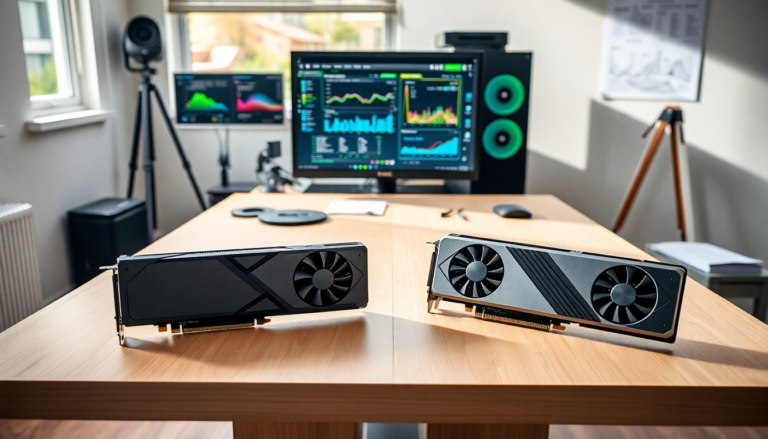Argomenti trattati
Ever wondered how a new GPU stacks up against its slightly older sibling? The Nvidia RTX 5060 has recently hit the headlines, but the buzz around it is not without its controversies. Despite Nvidia’s tight grip on pre-release drivers, some outlets have managed to share insights into its performance, especially against the RTX 5060 Ti. What do these benchmarks reveal? Let’s dig deeper into the numbers and implications.
Comparative benchmarks: RTX 5060 vs. RTX 5060 Ti
According to early benchmarks, the RTX 5060 trails the RTX 5060 Ti by an average of 15%. This data, primarily sourced from a few select media outlets granted limited access to Nvidia’s driver, raises some eyebrows. As for the testing conditions, reviewers were somewhat restricted, only allowed to compare the RTX 5060 with its predecessors, namely the RTX 3060 and RTX 2060 Super. The titles tested included heavy hitters like Doom: The Dark Ages, Cyberpunk 2077, and Marvel Rivals—but was this really enough to gauge the true capabilities of the RTX 5060?
The benchmarks showed the RTX 5060 performing decently across all three games tested, but could it have done better? For instance, in Doom: The Dark Ages, the RTX 5060 held its own, outperforming the RTX 4060 and showing a 35% lead over the RTX 3060. Still, it couldn’t quite catch up to the RTX 5060 Ti, which consistently outperformed it. The situation becomes even more interesting when you factor in the strict Nvidia guidelines that dictate how these reviews could be executed. It seems like Nvidia is playing a strategic game, crafting a narrative that positions the RTX 5060 Ti as the clear choice for serious gamers.
Understanding the limitations of the preview
It’s essential to take these early benchmarks with a grain of salt. The testing conditions set by Nvidia were not the most favorable for the RTX 5060, and the limitations on game selection and graphical settings certainly shaped the outcomes. For example, the tests were conducted at 1080p resolution with ultra image quality, employing DLSS in quality mode. Sure, this might sound great on paper, but it raises the question: how would the RTX 5060 perform in diverse real-world gaming scenarios? Personally, I remember when I first got my hands on the RTX 3060 and was astounded by its versatility across various titles, something that we might not entirely see reflected in these previews.
One of the most contentious points in these comparisons is the use of frame generation. Nvidia’s implementation of DLSS and frame generation has its nuances, and while the RTX 5060 did show promising results under these conditions, it’s crucial to remember that frame generation isn’t a straightforward multiplier of native performance. The performance differences between the GPUs might appear larger on paper than they truly are in practice. The RTX 5060, for example, averaged around 150.56 FPS using 2x frame generation, which, while respectable, still left a noticeable gap compared to the RTX 5060 Ti.
The implications for gamers
So, what does this all mean for gamers? It somewhat complicates the decision-making process. If you’re on the fence about upgrading or purchasing a new GPU, understanding these benchmarks and the nuances behind them can help. The RTX 5060 may shine in specific titles and settings, but if you’re looking for consistency across a broader range of games, the RTX 5060 Ti seems like the safer bet. However, this is all subject to change as more comprehensive reviews come out post-launch. Nvidia’s approach of limiting early access to drivers could have strategic implications for the market—could it be a way to build anticipation while steering buyers toward the higher-end model?
In the end, the gaming community thrives on shared experiences and insights. As many know, the real test of a GPU’s capability comes from actual gameplay. I can’t help but feel a mix of excitement and frustration as we await further reviews that will provide a clearer picture of how the RTX 5060 truly holds up in the wild. Will it surprise us, or will it fall short of expectations? Only time will tell.

